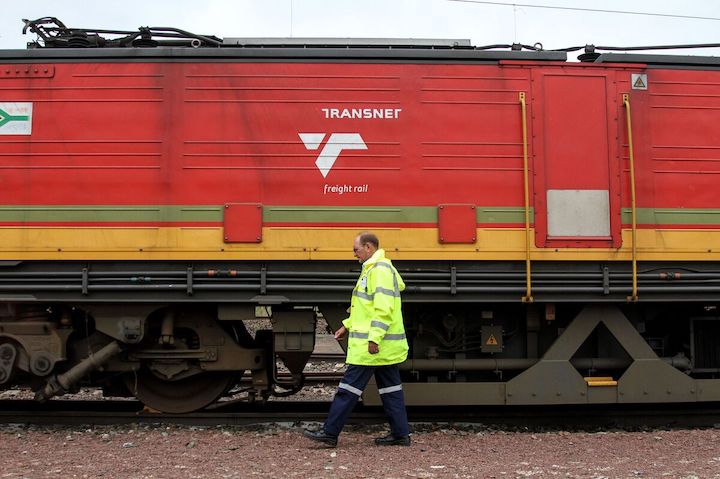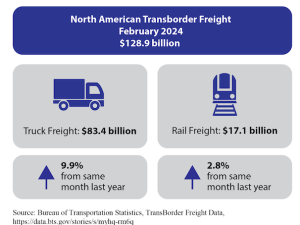The rail line linking South Africa’s richest province to the continent’s biggest container port has virtually ground to a halt over the last two weeks because of power-cable theft.
In the week ended May 21, the Container Corridor that runs from the Port of Durban on the Indian Ocean to the City Deep station in downtown Johannesburg ran at just 25% capacity after the overhead power lines that keep the trains running were constantly severed. The week earlier it ran at 36% of capacity.
“We never thought that we would come to a point where security would be the biggest risk,” Rudzani Ligege, the managing executive for the corridor, which is run by the freight rail unit of state-owned Transnet SOC Ltd., said in an interview on Wednesday. “It’s a nightmare.”
The 740 kilometer (460-mile) double rail line is key to moving supplies in Africa’s most industrialized economy. Vandalism on the container corridor adds to the woes for Transnet, which is already struggling with crime and shortage of locomotive spare parts on its network that moves coal.
The freight service transports parts and finished cars for companies including BMW AG and Ford Motor Co. The line also supplies iron ore to a steel plant owned by a unit of ArcelorMittal SA in Newcastle. Grain, coal and timber are run to Durban for export while containerized goods head north to Johannesburg and onward to countries in the region.

The crisis is forcing companies dependent on the container line to rely on costly trucks that ply the congested N3 highway between Durban and Johannesburg. Shipments either miss their vessels or the ships moored in the port pay demurrage costs to stay in the harbor for longer than planned. That affects shippers such as Maersk and CMC Shipping Ltd., Ligege said. Seven Seas Worldwide Ltd. sent an email apologizing to customers for delays.
In the financial year ended March 31, 591 kilometers of cable, equivalent to four-fifths of its length was stolen, Ligege said. Power cable theft has risen almost 11-fold since 2016.
“That’s how grave the problem is,” he said.
The company, which runs the biggest rail network in Africa, doesn’t have a dedicated security budget because it was built at a time when security wasn’t considered to be an issue. That means all initiatives have to be funded out of operating expenditure.
While Transnet is considering the use of drones, night-vision devices and task teams to tackle the problem, it has appealed to the police to act, Ligege said.
Transnet is considering switching to the use of diesel locomotives to mitigate against the risk of theft. But that would involve the cost of replacing the current locomotives as well as retrofitting two long tunnels to improve ventilation, Ligege said.
While the change would increase the company’s emissions it would also mean there were fewer diesel trucks on the highway to Durban. A train that can carry containers equivalent to 100 twenty-foot-equivalent units equates to 100 trucks, he said, using a commonly used measurement for container volumes.
Transnet has tendered for a private company to run and maintain the Durban-Johannesburg rail corridor for 20 years. That tender process has yet to conclude.







